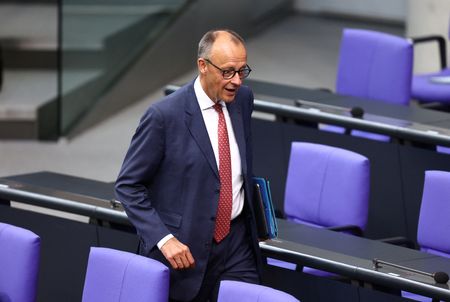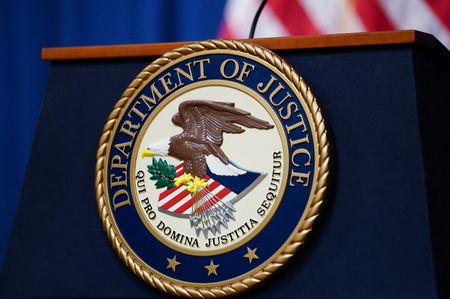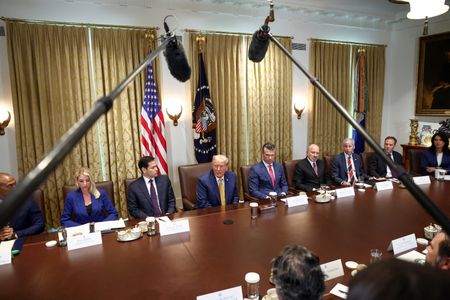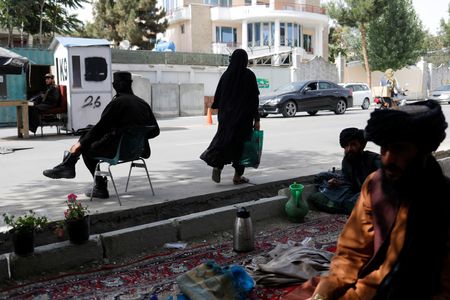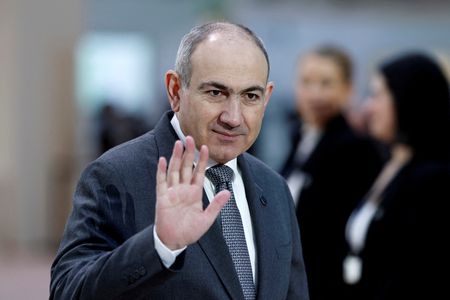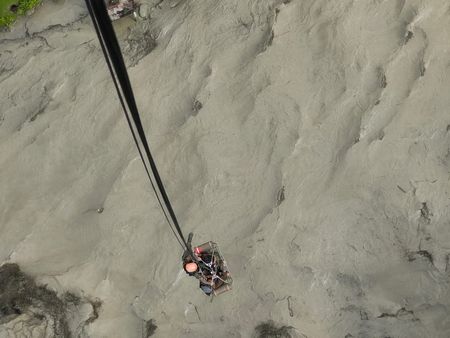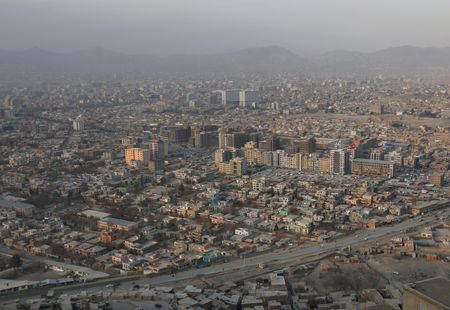By John O’Donnell and Christoph Steitz
FRANKFURT (Reuters) -German Chancellor Friedrich Merz is set to make his first visit to China towards the end of this year with a delegation of top business executives, a person with direct knowledge of the matter said.
The visit from the head of Europe’s biggest economy and one of China’s largest trading partners would be symbolically important in underpinning relations between the two, amid friction with the United States over trade tariffs.
Chinese companies hope to invest more in Germany and Merz’s visit could be used to repair relations after earlier tensions with Berlin, the person, who has knowledge of the preparations, told Reuters.
The trip, which could come as soon as October, has yet to be finalised and details could change.
A spokesperson for the German chancellery declined to comment. The Chinese foreign ministry did not immediately respond to a Reuters request for comment.
It follows a visit to Berlin earlier this month by China’s foreign minister, Wang Yi, on a European tour seeking to lay the groundwork for a summit between European Union and Chinese leaders later this month.
German Foreign Minister Johann Wadephul said the two foreign ministers had discussed Russia’s invasion of Ukraine, Taiwan and the crisis in the Middle East.
China and Germany are closely interwoven, not least by German carmakers’ dependence on China, the world’s biggest auto market, in making and buying their cars.
Relations faltered under the previous German government, where then Foreign Minister Annalena Baerbock repeatedly criticised Beijing, describing President Xi Jinping as a “dictator”, and China as a rival.
Points of friction remain. Germany summoned the Chinese ambassador to the foreign ministry on Tuesday after saying China’s military had laser targeted a German aircraft in the Red Sea.
So far, Merz has also taken a tough public line on China, while avoiding a full-blown standoff.
Earlier this year, he underscored worries about China’s closeness to Russia while pledging to reduce Germany’s reliance on the world’s second largest economy.
Xi, meantime, called on Merz to deepen cooperation and jointly promote economic globalisation.
(Writing By John O’Donnell; Additional reporting by Ryan Woo in Beijing; Editing by Emelia Sithole-Matarise)

